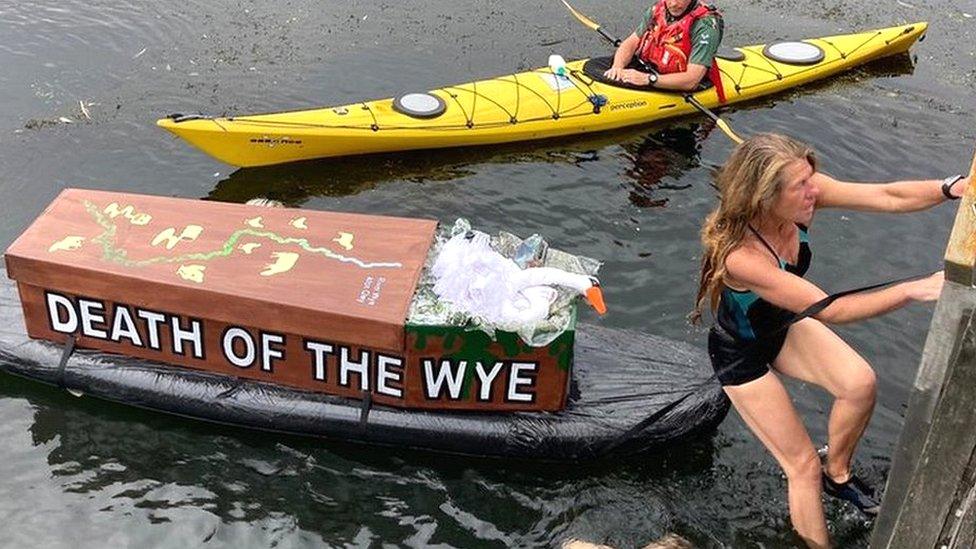River pollution: Warning Western Cleddau faces ecological disaster
- Published
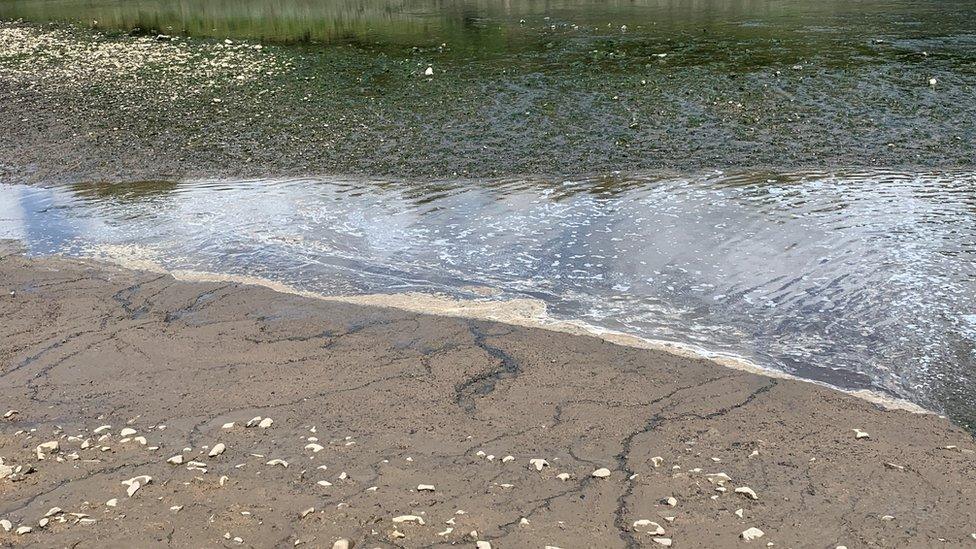
Brown froth can be seen on the banks of the Western Cleddau
Campaigners want action amid warnings that a river in Pembrokeshire faces "ecological disaster" due to pollution.
Video shows discoloured liquid released into the Western Cleddau from two discharge pipes and a thick residue on the riverbank, which campaigners claim is from a First Milk discharge pipe.
Regulator Natural Resources Wales (NRW) said it was investigating.
First Milk said "discoloured discharge" had been released for a short time, but was within limits set by NRW.
The company, which operates one of the two outfall pipes, said the discharge went into the water from its treatment facility at Merlin's Bridge earlier this month.
Campaigners dispute the claim that this was an isolated incident.
Welsh Water said its waste treatment facility at Merlin's Bridge "temporarily experienced operational issues" after an "unauthorised dairy-type product" was placed into the sewer network. It said the matter was now resolved, although it was investigating the source.
Simon Walters has lived near the Western Cleddau all his life, but started documenting discharges over the past few weeks because of his mounting concerns.
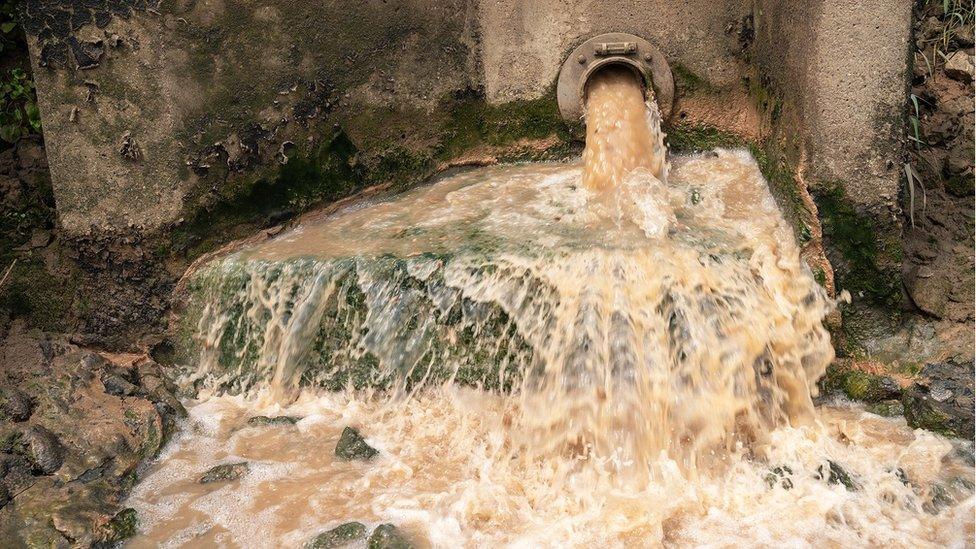
A First Milk discharge pipe into the Western Cleddau at a spot known as Fortune's Frolic on 16 June
One of the outfall pipes at the Fortune's Frolic site is connected to the First Milk cheese creamery in Haverfordwest. The other pipe is connected to the local Welsh Water waste water treatment works.
Mr Walters claimed the river was facing disaster.
"I've seen it being decimated over the years," he said.
"Fish numbers have fallen off a cliff. Bird life has disappeared. The [discharge from the] sewage pipe can be very dark and grey and fluctuating in volumes.
"The First Milk pipe has been in full flow for two, three or four hours at a time with brown effluent, and this has been going on for months."
Mr Walters claimed the discharges from the First Milk pipe had "coated" the banks of the river with a "red, orangey mousse" which turned black as it dried out.
First Milk said it had a "small issue" with its treatment facility which resulted in "some discoloured discharge" being released into the river for "a short time" which was "rapidly addressed".
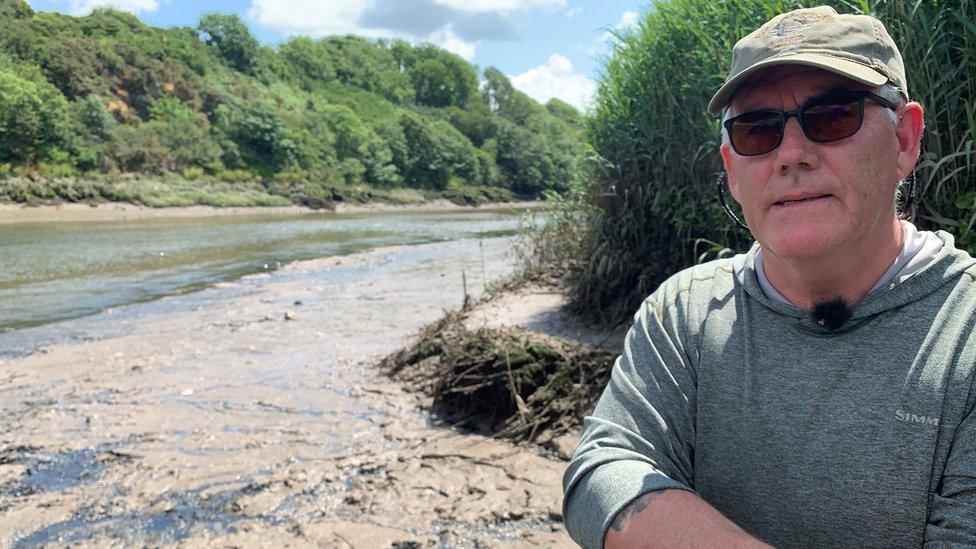
"Fish numbers have fallen off a cliff... bird life has disappeared," says local resident Simon Walters
The company claimed that the incident "did not breach the discharge consents set by NRW, or represent a significant risk to the environment".
Gail Davies-Walsh, chief executive of Afonydd Cymru, the Wales river trusts umbrella body, said she agreed with campaigners that the Western Cleddau was on the brink of disaster and called on NRW to review consents for discharges into the river.
She also claimed there was evidence of more long-standing concerns at the First Milk site.
'Foul material'
"It was originally picked up for nutrient failures in 2005/6," she said.
"Measures were taken against those. More recently, there's clear evidence of failure against some of the conditions on their permits and that has been over multiple years."
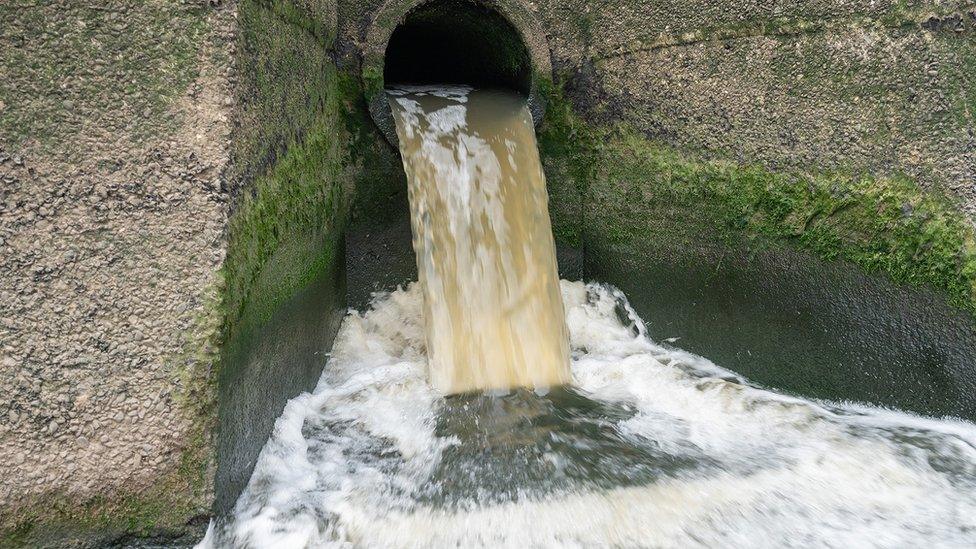
Brown effluent from a Welsh Water discharge pipe on 16 June
In response, First Milk said it had recently conducted a "full operational review" of its treatment works and had appointed a "new operator to run and manage the facility" in conjunction with the company. It also said it was making further investment in its treatment facility.
Ms Davies-Walsh said there should be "stricter regulation and enforcement" by NRW.
Stephen Esmond, secretary of the Pembrokeshire Anglers Association, said: "Sea trout numbers have fallen off a cliff.
"My concerns were raised a few weeks ago about how much stuff is coming out of here. I think the fish are coming up here and are tasting this foul material and not making their way up the river.
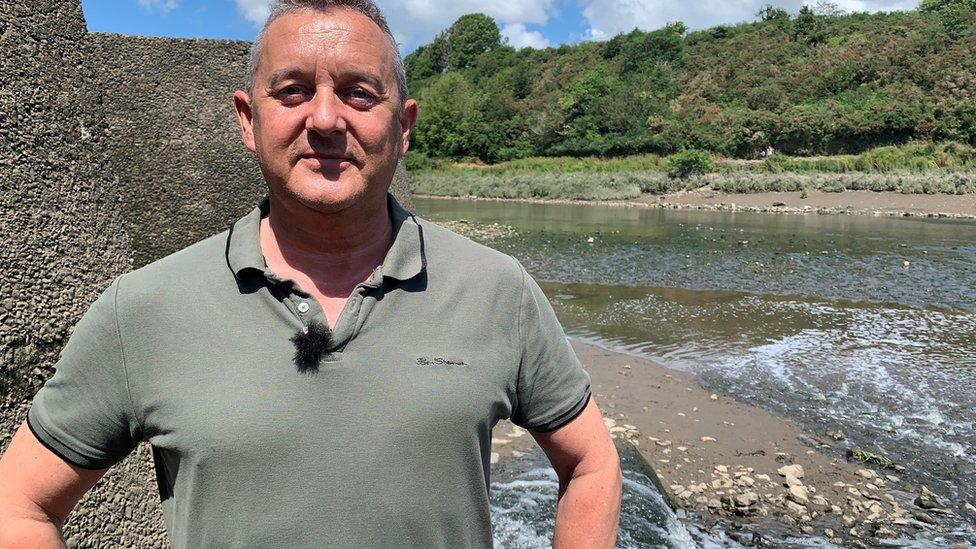
"Get NRW down here more often to keep an eye on it," says Stephen Esmond, secretary of the Pembrokeshire Anglers Association
"We haven't seen any fresh fish come for about a month. This isn't as diluted, so it's a stronger mixture, putting the fish off. There should be shoals and shoals of bass and all we've seen are mullet. Mullet like this sort of environment, but there's no bass."
Mr Esmond, who said club membership was down because of declining fish stocks, also called for better policing of the rivers by NRW.
"Get NRW down here more often to keep an eye on it," he said. "Get the locals who are on hand so they can be here. A heavy discharge can go on for three or four hours. It's lifeless here."
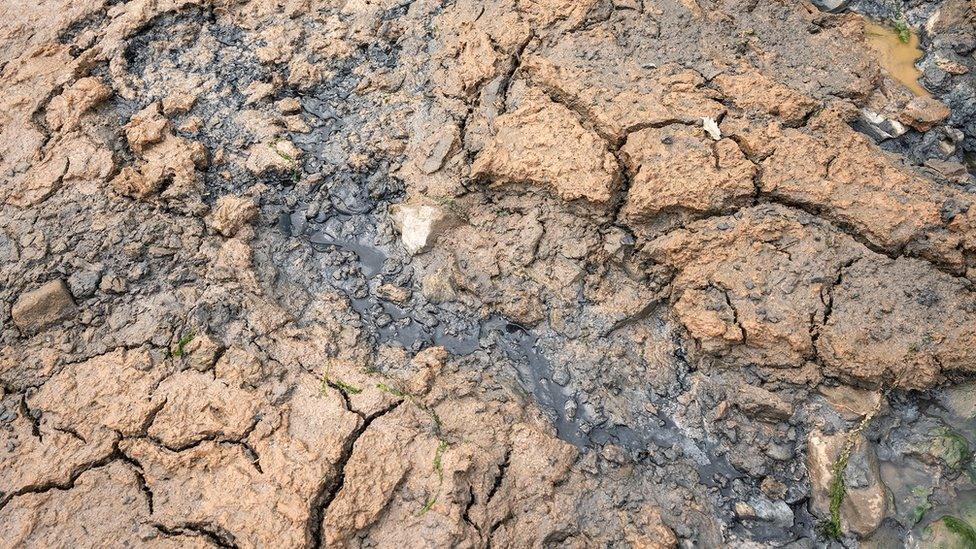
Deposits on the mudflats near the First Milk discharge pipe at Fortune's Frolic
Ric Cooper, a scientist from Hook, is also a kayaker and paddle boarder on the river, and has been gathering information about its water quality.
"I've been asking NRW and other agencies for analytical data on the river," said Mr Cooper.
"It's pretty clear that the nitrogen levels in this river - the nitrate levels - are much higher than they should be. This river is hypernutrified which means there is too much phosphorus and nitrogen in it.
"You get overgrowth of algae that soak up the oxygen and these nutrients and you get a decrease in the oxygen available to the fish and the invertebrates in the mud, with the all the knock-on effects."
In January 2021, a report for NRW concluded that the Western Cleddau was failing its phosphorus targets "in every water body" that was assessed.
It was recommended that a special project be initiated on the Cleddau rivers to reduce phosphorus concentrations in the river, with particular focus on the Western Cleddau.
Related topics
- Published30 March 2023
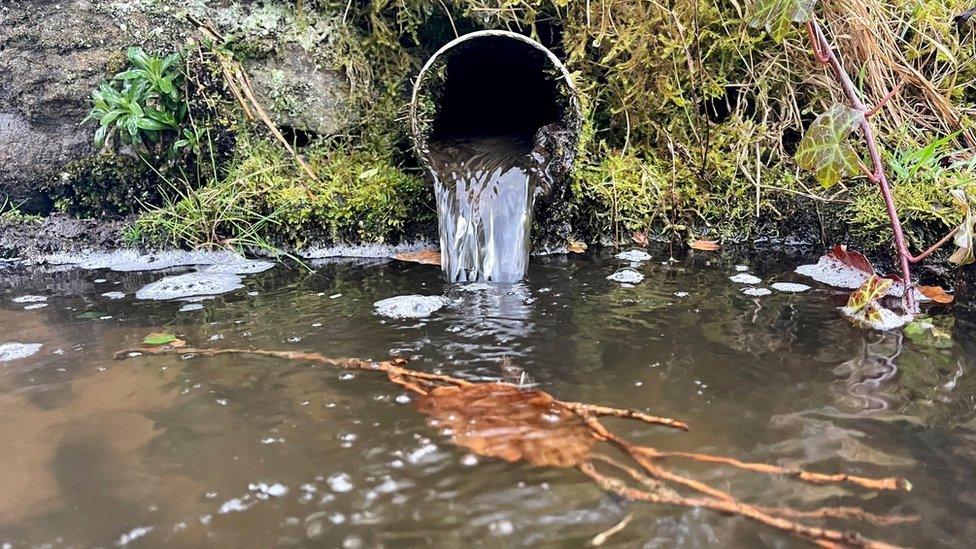
- Published14 March 2023
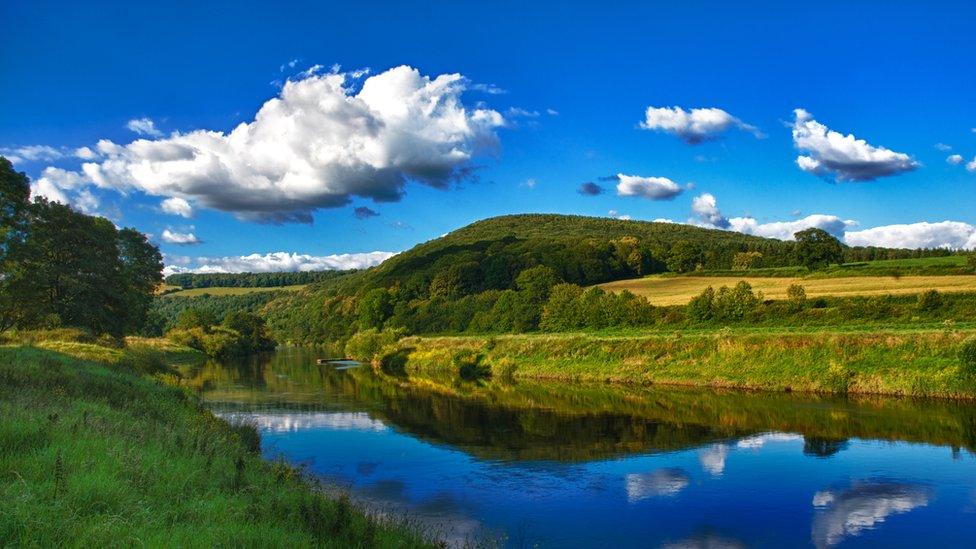
- Published20 March 2022
